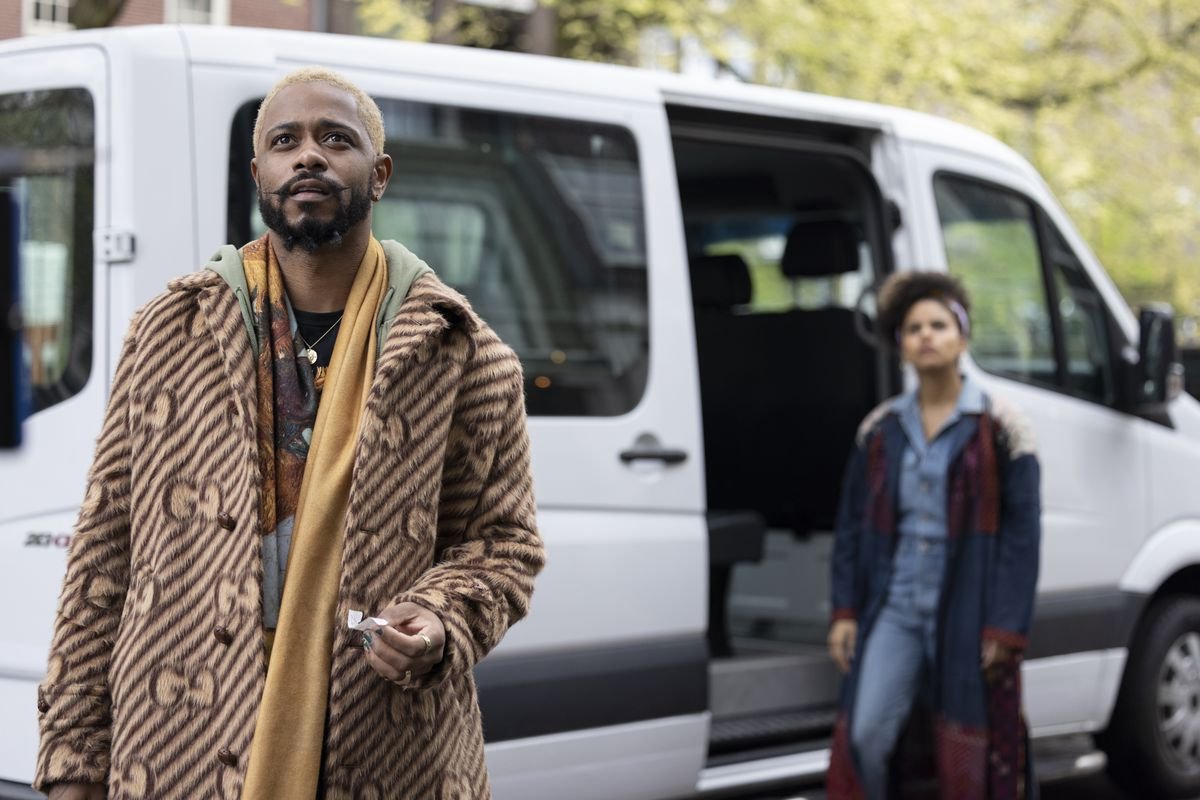Space Time
I googled when the last episode of Atlanta’s second season aired in the US, not so much for a sense of where I’d left its characters but rather for what sort of world it entered. What’s shocking to me personally is how few of these episodes I actually remember, especially as someone who measures time via alternating sports calendars and/or the relay of pop culture.
I do remember the trailer announcing the show’s return under a title, Robbin’ Season, and at first thinking of its chaotic sequence as a mocking manifestation of “American carnage,” a quite vivid turn of phrase the country’s 45th president pulled out of someone’s ass to accuse the 44th, Obama, of enabling a lawless society. Atlanta seasons, appropriately, remain as few and far between as drops of Kendrick Lamar albums, and they’re anticipated just as wildly — for their ability to take a largely unsentimental temperature check of the African-American condition.
I like to think black people everywhere, even in Africa, waited anxiously to see how Donald Glover and his screenwriting team would interpret a new and troubling world order — wherein white rage got to enact a show of revenge unchecked, and black benevolence reckoned with the learning that perhaps nothing had ever actually mattered. I was a little bit disappointed. I’ve always been a little bit disappointed. Atlanta seemed to get by presuming it was enough to merely pose its considerable audience interesting questions, and then let the Internet’s swell deal with that for several days after an episode’s metaphysical premiere. I say ‘metaphysical’ because by the time you got down to it, the culprit moment was covered in memes and discourse. All the shrugging you did over what one scene did or didn’t mean was allegedly the point, and this seemed like such a flimsy outcome of art to me.
I didn’t love the episode with all the satirical hood commercials; I can only tolerate jokes where the punchline drops first when they’re told on stage. I didn’t get the point of the Teddy Perkins one either, and honestly felt like it epitomised the show’s constant need to take water-breaks from its main cast — so that it never really had to deal with the long haul of methodical character development. The other species of Atlanta episode, which was my favourite, often placed Alfred (an up-and-coming rapper named Paper Boi), his manager Earn (who is his cousin), and Alfred’s roadie Darius (a Fast Times-esque hippie of Nigerian descent) in situations that illustrated just how middling their shared career was. You can’t get away with a lot of the things Atlanta does on television, and you most definitely can’t get away with too many conventional episodes about nothing, especially in quick succession. Season 2 middled some more, and gave me the confidence to laud the practicality of Insecure at Atlanta’s disadvantage, and of Rami’s willingness to stick around its core plot and actually deal. I hate the sound of that even now, weighing representational shows against one another to determine which best channels me, a person of colour.
But this is how little precious ore there is. Atlanta somehow found itself shouldering so much of the pressure it worked reasonably hard to shrug off. Supremacy — of race, of gender, of sexuality, of class, of military — was in vogue, and we wanted the one TV show that looked like us, sounded like us, to fashion a response.
My attorney thinks maybe I just wanted some nuance. If Earn, Alfred and Darius, and Van, were indeed leading us deep into a surrealistic forest, I wanted the show’s socio-economic detours to refrain from grabbing obvious pretzels. I dislike when content that wishes to discuss race typifies the behaviour of white characters as blithely clueless or callously villainous, because this eschews any real exploration of the fact that black and brown people must continue to exist somehow in a white world. Not only does Atlanta’s third, brilliant season shun this approach altogether, it embarks upon a scintillating new one: where the ultimate interracial nightmare, as envisioned by white supremacy, is materialised beside a reality where blackness, and not the fantasy of black excellence, finally begins its world tour.
Side-by-side, these short stories complement each other perfectly. The gang taking its hilarious Scooby Doo act across Europe captures the limitations of black cultural conquest, how it can begin and end with a rap lyric, every other side of hyper-suppositions of a time and place where ordinary white folks find themselves slapped with reparations bills, or having to pass as black to access academic privileges, with a performance that has canny echoes of a minstrel show. Amidst all this Wonderlanding Atlanta goes ahead and presses the horror button, with its musical tremors and eerie pauses — because grown men and women in the 21st fucking century have vocalised these prospects as their worst nightmare, and acted against them with votes and guns. I can’t think of anything so cavalier with its admissions towards genre, seeing as Atlanta fancies itself a comedy, or that’s subverted my expectations so repeatedly as to begin to cover me in goosebumps.
There’s a play of symmetry beneath Atlanta’s blurriness, finally, and there’s much less blurriness. One weird wormhole rarely fails to open another, with a through-line of familiarity (the N word, black skin as commodity, black skin as art-form, white allies, white apology in spite of white infrastructure, and white panic) rendering every last oddity totally feasible.
This shit makes me want to write again.

